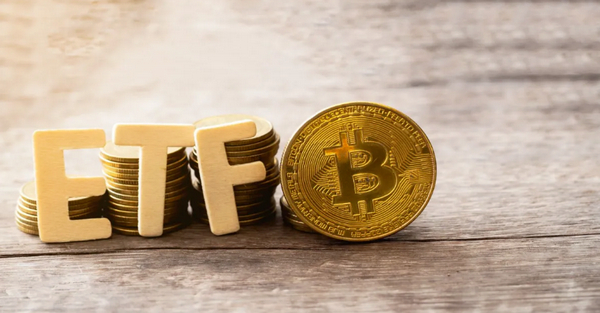-
 Bitcoin
Bitcoin $84,458.0914
0.91% -
 Ethereum
Ethereum $1,594.6498
1.40% -
 Tether USDt
Tether USDt $0.9997
-0.02% -
 XRP
XRP $2.0953
1.29% -
 BNB
BNB $585.8219
1.36% -
 Solana
Solana $133.4769
7.01% -
 USDC
USDC $0.9999
-0.01% -
 Dogecoin
Dogecoin $0.1563
2.13% -
 TRON
TRON $0.2445
-3.65% -
 Cardano
Cardano $0.6161
2.06% -
 UNUS SED LEO
UNUS SED LEO $9.4444
0.55% -
 Chainlink
Chainlink $12.4662
2.64% -
 Avalanche
Avalanche $19.2395
2.48% -
 Toncoin
Toncoin $2.9466
3.63% -
 Stellar
Stellar $0.2370
1.87% -
 Shiba Inu
Shiba Inu $0.0...01190
2.80% -
 Sui
Sui $2.0985
1.05% -
 Hedera
Hedera $0.1588
1.25% -
 Bitcoin Cash
Bitcoin Cash $330.6320
3.49% -
 Polkadot
Polkadot $3.6363
3.70% -
 Litecoin
Litecoin $74.7529
-0.92% -
 Hyperliquid
Hyperliquid $16.4922
10.38% -
 Dai
Dai $1.0000
-0.01% -
 Bitget Token
Bitget Token $4.3637
1.70% -
 Ethena USDe
Ethena USDe $0.9990
-0.02% -
 Pi
Pi $0.6051
-3.15% -
 Monero
Monero $217.1749
-0.79% -
 Uniswap
Uniswap $5.2140
1.44% -
 OKB
OKB $51.2977
-1.94% -
 Pepe
Pepe $0.0...07271
2.79%
why does bitcoin etf matter
The SEC's regulation of Bitcoin ETFs offers investors enhanced protection and assurance in the cryptocurrency market.
Oct 30, 2024 at 12:41 am

Why Does Bitcoin ETF Matter?
A Bitcoin ETF (exchange-traded fund) is an investment vehicle that allows investors to gain exposure to the price of Bitcoin without having to purchase the cryptocurrency directly. ETFs are traded on exchanges, such as the New York Stock Exchange (NYSE), and are regulated by the Securities and Exchange Commission (SEC).
There are several reasons why a Bitcoin ETF is important:
- Increased Accessibility: A Bitcoin ETF would make it easier for investors to buy and sell Bitcoin. Currently, investors must purchase Bitcoin through cryptocurrency exchanges, which can be complex and risky. An ETF would allow investors to buy and sell Bitcoin through their brokerage accounts, just like any other stock or bond.
- Reduced Volatility: ETFs are typically less volatile than the underlying asset. This is because ETFs are diversified, meaning that they hold a basket of assets rather than just one. A Bitcoin ETF would likely hold a basket of Bitcoin futures contracts, which are less volatile than Bitcoin itself.
- Increased Liquidity: ETFs are more liquid than the underlying asset. This means that it is easier to buy and sell ETFs than it is to buy and sell the underlying asset. A Bitcoin ETF would likely be more liquid than Bitcoin itself, making it easier for investors to enter and exit the market.
- Regulatory Oversight: ETFs are regulated by the SEC, which provides investors with additional protection. The SEC requires ETFs to meet certain standards regarding transparency, disclosure, and custody of assets. This provides investors with peace of mind knowing that their investments are being protected.
The launch of a Bitcoin ETF would be a significant event for the cryptocurrency industry. It would increase accessibility, reduce volatility, increase liquidity, and provide regulatory oversight. These factors would make Bitcoin more attractive to investors, which could lead to increased demand and a higher price.
Disclaimer:info@kdj.com
The information provided is not trading advice. kdj.com does not assume any responsibility for any investments made based on the information provided in this article. Cryptocurrencies are highly volatile and it is highly recommended that you invest with caution after thorough research!
If you believe that the content used on this website infringes your copyright, please contact us immediately (info@kdj.com) and we will delete it promptly.
- Bitcoin (BTC) to $300,000 Looks Unstoppable—Here’s the Chart Proof
- 2025-04-17 18:15:14
- On April 17, 2025, Jesse Pollak, a well-known voice in the Ethereum ecosystem, took to Twitter
- 2025-04-17 18:15:14
- Solinabot Records Over 2900 SOL in Processed Payouts on Telegram Since February Launch
- 2025-04-17 18:15:12
- Dogecoin (DOGE) May Transition to a Deflationary Model, Opening the Door to New Levels of Value
- 2025-04-17 18:15:12
- Fantasy.top: The Most Efficient and Entertaining Way to Do It
- 2025-04-17 18:10:12
- Superheaven haven't made music in 10 years, but they've been gaining prestige faster in recent years than they ever did
- 2025-04-17 18:10:12
Related knowledge

What is the difference in returns between long-term holding of a Bitcoin ETF and holding Bitcoin directly?
Apr 09,2025 at 04:15am
When considering the difference in returns between long-term holding of a Bitcoin ETF and holding Bitcoin directly, it's essential to understand the nuances and factors that affect each investment option. Both approaches have their unique advantages and potential drawbacks, which can significantly impact the overall returns over time. Understanding Bitc...

How is the "roll cost" of a futures Bitcoin ETF generated?
Apr 08,2025 at 01:22pm
The 'roll cost' of a futures Bitcoin ETF is a critical concept for investors to understand, as it directly impacts the performance of the ETF. In this article, we will delve into the mechanics of how the roll cost is generated, exploring the underlying processes and factors that contribute to this cost. Understanding Futures ContractsFutures contracts a...

How can the premium or discount of a Bitcoin ETF be narrowed through an arbitrage mechanism?
Apr 09,2025 at 12:07am
Arbitrage mechanisms play a crucial role in narrowing the premium or discount of a Bitcoin Exchange Traded Fund (ETF). Understanding how these mechanisms work can provide valuable insights into the dynamics of Bitcoin ETFs and their relationship with the underlying asset. This article will delve into the specifics of how arbitrage can be used to align t...

What factors affect the bid-ask spread of a Bitcoin ETF?
Apr 08,2025 at 08:50pm
The bid-ask spread of a Bitcoin Exchange Traded Fund (ETF) is a critical metric that investors and traders closely monitor. It represents the difference between the highest price a buyer is willing to pay (bid) and the lowest price a seller is willing to accept (ask). Several factors influence this spread, and understanding them can help investors make ...

How is the seed capital of a Bitcoin ETF used?
Apr 10,2025 at 02:15pm
The seed capital of a Bitcoin ETF plays a crucial role in the establishment and operation of the fund. This initial investment is used to create the fund's underlying assets, manage operational costs, and ensure the ETF can start trading on an exchange. Understanding how this seed capital is utilized provides insight into the mechanics of Bitcoin ETFs a...

What is the difference between "physically backed" and "synthetic" Bitcoin ETFs in terms of holding assets?
Apr 10,2025 at 04:56pm
Bitcoin Exchange Traded Funds (ETFs) have become a popular way for investors to gain exposure to the cryptocurrency market without directly owning the underlying asset. There are two primary types of Bitcoin ETFs: physically backed and synthetic. Understanding the differences between these two types, particularly in terms of how they hold assets, is cru...

What is the difference in returns between long-term holding of a Bitcoin ETF and holding Bitcoin directly?
Apr 09,2025 at 04:15am
When considering the difference in returns between long-term holding of a Bitcoin ETF and holding Bitcoin directly, it's essential to understand the nuances and factors that affect each investment option. Both approaches have their unique advantages and potential drawbacks, which can significantly impact the overall returns over time. Understanding Bitc...

How is the "roll cost" of a futures Bitcoin ETF generated?
Apr 08,2025 at 01:22pm
The 'roll cost' of a futures Bitcoin ETF is a critical concept for investors to understand, as it directly impacts the performance of the ETF. In this article, we will delve into the mechanics of how the roll cost is generated, exploring the underlying processes and factors that contribute to this cost. Understanding Futures ContractsFutures contracts a...

How can the premium or discount of a Bitcoin ETF be narrowed through an arbitrage mechanism?
Apr 09,2025 at 12:07am
Arbitrage mechanisms play a crucial role in narrowing the premium or discount of a Bitcoin Exchange Traded Fund (ETF). Understanding how these mechanisms work can provide valuable insights into the dynamics of Bitcoin ETFs and their relationship with the underlying asset. This article will delve into the specifics of how arbitrage can be used to align t...

What factors affect the bid-ask spread of a Bitcoin ETF?
Apr 08,2025 at 08:50pm
The bid-ask spread of a Bitcoin Exchange Traded Fund (ETF) is a critical metric that investors and traders closely monitor. It represents the difference between the highest price a buyer is willing to pay (bid) and the lowest price a seller is willing to accept (ask). Several factors influence this spread, and understanding them can help investors make ...

How is the seed capital of a Bitcoin ETF used?
Apr 10,2025 at 02:15pm
The seed capital of a Bitcoin ETF plays a crucial role in the establishment and operation of the fund. This initial investment is used to create the fund's underlying assets, manage operational costs, and ensure the ETF can start trading on an exchange. Understanding how this seed capital is utilized provides insight into the mechanics of Bitcoin ETFs a...

What is the difference between "physically backed" and "synthetic" Bitcoin ETFs in terms of holding assets?
Apr 10,2025 at 04:56pm
Bitcoin Exchange Traded Funds (ETFs) have become a popular way for investors to gain exposure to the cryptocurrency market without directly owning the underlying asset. There are two primary types of Bitcoin ETFs: physically backed and synthetic. Understanding the differences between these two types, particularly in terms of how they hold assets, is cru...
See all articles























































































